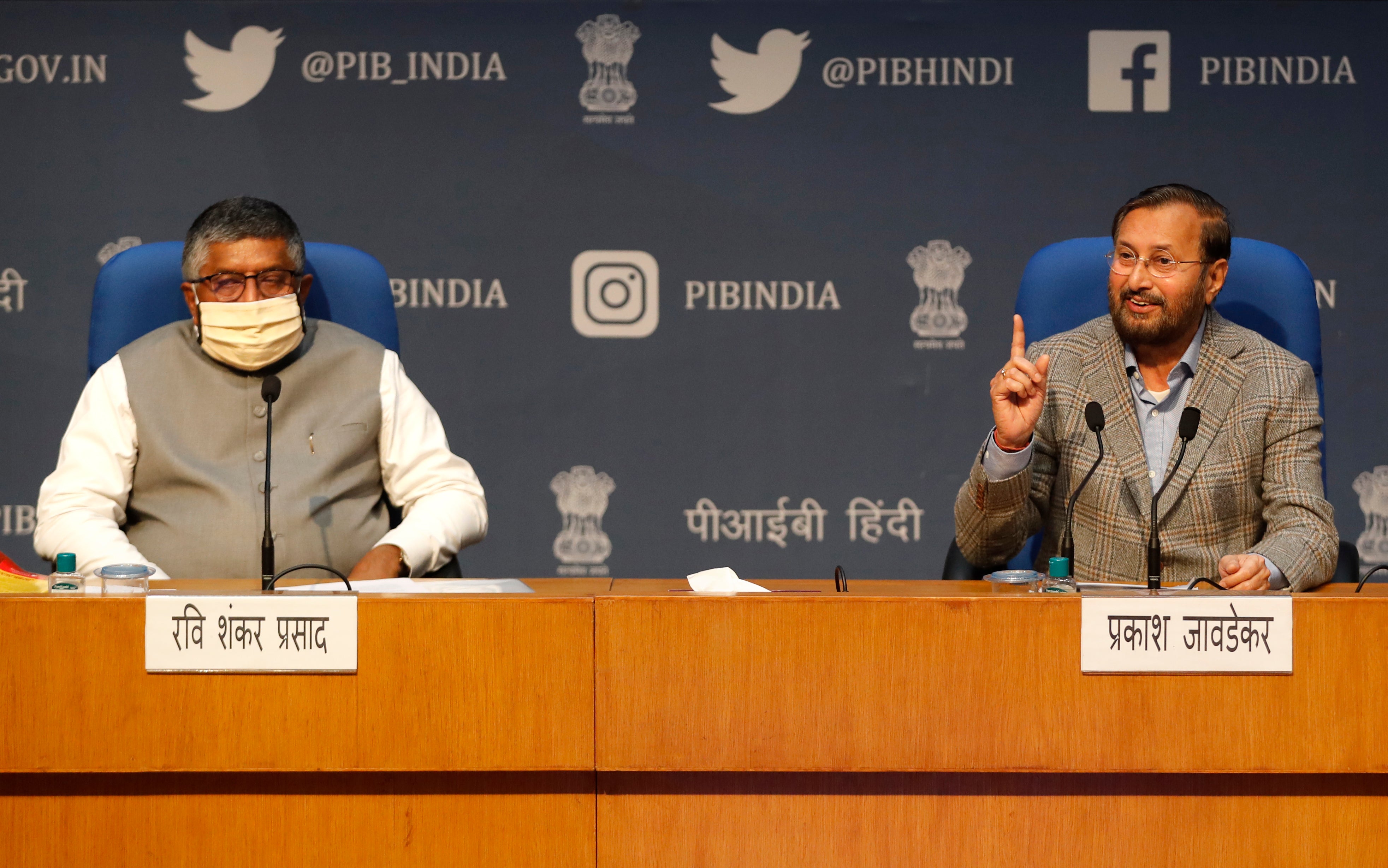India says Twitter knowingly not complying with local laws
The standoff between the Indian government and Twitter has escalated after the country’s technology minister accused the social media giant of deliberately not complying with local laws

Your support helps us to tell the story
From reproductive rights to climate change to Big Tech, The Independent is on the ground when the story is developing. Whether it's investigating the financials of Elon Musk's pro-Trump PAC or producing our latest documentary, 'The A Word', which shines a light on the American women fighting for reproductive rights, we know how important it is to parse out the facts from the messaging.
At such a critical moment in US history, we need reporters on the ground. Your donation allows us to keep sending journalists to speak to both sides of the story.
The Independent is trusted by Americans across the entire political spectrum. And unlike many other quality news outlets, we choose not to lock Americans out of our reporting and analysis with paywalls. We believe quality journalism should be available to everyone, paid for by those who can afford it.
Your support makes all the difference.The standoff between the Indian government and Twitter escalated Wednesday when the country’s technology minister accused the social media giant of deliberately not complying with local laws.
Technology Minister Ravi Shankar Prasad said Twitter has chosen “the path of deliberate defiance” when it comes to following new internet regulations that digital activists have said could curtail online speech and privacy in India.
“If any foreign entity believes that they can portray itself as the flag bearer of free speech in India to excuse itself from complying with the law of the land, such attempts are misplaced,” Prasad said in a series of tweets.
The Indian government has been at odds with major social media websites over a new set of sweeping regulations that give it more power to police online content. It requires companies to erase content that authorities deem unlawful, comply with government takedown orders, help with police investigations and identify the originators of “mischievous information.”
Under the new laws, social media websites and tech companies will also have to remove content within 36 hours after an administrative or legal order is issued. Their employees can be held criminally liable for failing to comply with the government’s requests.
Twitter said in a statement Tuesday that it was making every effort to comply with the new regulations.
The company said it had appointed an interim chief compliance officer in India, a requirement under the new regulations, and will soon notify India’s Ministry of Electronics and Information Technology
The new rules also require social media platforms to appoint what the government calls grievance officers to handle complaints from law enforcement agencies.
Prasad, the IT minister, also accused Twitter of bias and said it was labeling some content as manipulated media, “only when it suits its likes and dislikes.”
In May, leaders from Modi’s party tweeted parts of a document they said was created by the main opposition Congress Party to discredit the government's handling of the pandemic. Some Congress leaders complained to Twitter, saying the document was forged. In response, Twitter marked some posts as “manipulated media.”
Twitter rules apply “manipulated media” tags to posts that have been “deceptively altered or fabricated.”
The new internet regulations, announced in February, are among many challenges social media companies face after Prime Minister Narendra Modi’s pushed back against criticism that its new rules restrict online speech.
Modi’s government has sought for years to control social media and has often directed Twitter to take down tweets or accounts that appear critical of his party and its leaders, including his administration’s handling of the pandemic. Twitter has complied with most of those orders.
The friction has intensified recently, with the government threatening social media companies with legal action and their employees with prison time if they refuse to comply with the takedown directives.
Initially, Twitter expressed concern about what it called “the potential threat to freedom of expression” when the new rules came into effect late last month.